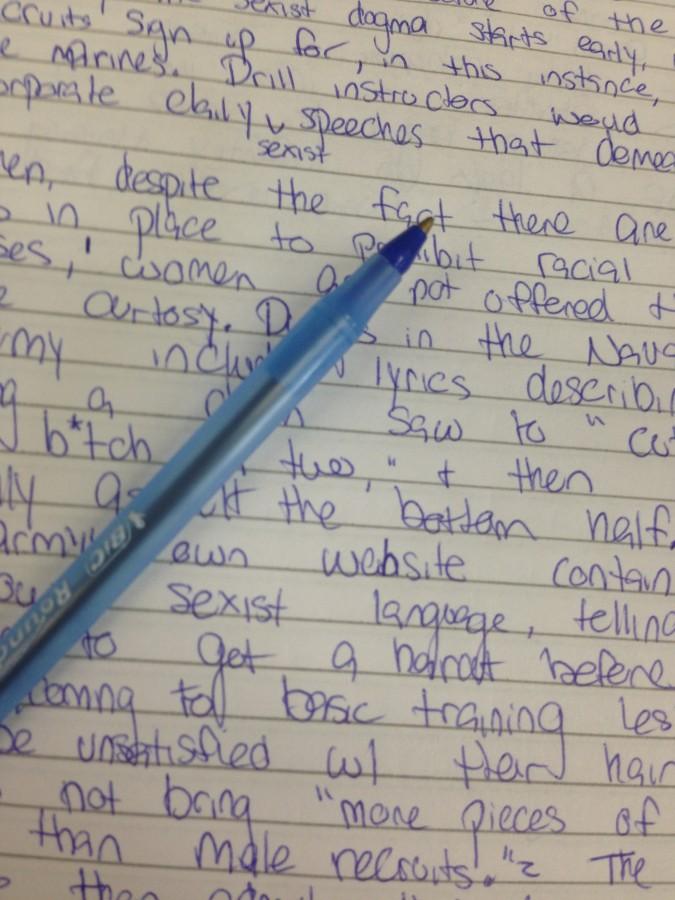Writing Tips
Writing is hard, but it’s not something people think about until they have to create an essay or want to write a short story. However, there are a few universal tips that will make whatever you’re writing—whether it be an essay or a short story—easier to understand.
Keep Sentences Clean
The longer the sentence, the more confusing the ideas contained within tend to be. Each sentence should have a direct, clear meaning. It’s better to have a lot of short, clear sentences, than long, confusing ones.
For instance:
In The Loss of a Fan, Roderich learns that admirers are not important.
Versus
In The Loss of a Fan, by Elizabeta, Roderich, a rich boy who stays cooped up in his house all day, learns that having admirers in his life is not as important as his existing friendships.
While both of these are grammatically correct, the first example is much cleaner. Sentence one’s purpose: in this book, character learns this.
The second example, on the other hand, has too many purposes it’s trying to convey. This book, by author, with this character, who is like this, learns this and this—all in the same sentence.
Limit each sentence to have one or two purposes. A character does this action with this. A character learns this. The book teaches this. This shows that. There’s nothing wrong with breaking up ideas
Do Not Use Synonyms You Don’t Know the Meaning of
Do not replace words with “fancier” versions. In most instances, replacing words for more complicated ones just confuse the reader. After all, most people have never seen words like “distillate” outside of the SATs.
Even if you chose simple words, in most instances, replaced words are used incorrectly.
For instance:
“Hello!” she screamed, waving her arms in the air.
Versus
“Hello!” she bawled, waving her arms in the air.
Bawled means to wail or sob. The meaning of the sentence changes completely. While the first may have a negative connotation from scream, the second sentence makes the girl seem crying as opposed to scared or desperate.
Also:
“Hello!” she squawked, undulating her appendages in the air.
See, it just sounds silly.
Vary Your Sentences
This is one of the hardest pieces of advice to follow. When people write, they often cling to the same sentence structure. They are short and choppy. Or long, with too many clauses, like the sentence I’m writing now—they tend to drag on.
It’s a subtle art that becomes easier with practice. I don’t even notice when I’m varying my sentence length when I write. However, to begin with, look at how all your sentences are formed. If there are too many commas sentence after sentence, throw in a short sentence with no commas. It will sound much better than having multiple long sentences, or too many short ones.
For instance:
There was not much to do. It was boring to sit in the class. My eyes were fixed on the clock. An hour to go. It was too far away.
Or:
The clock ticked on endlessly, the second hand taking over an hour to drag by, and it still had thirty-six hundred turns to go, around and around. The teacher droned on at the front of the classroom, pointing to the board, his finger dusted in chalk, the words on the black stark and…
Both examples are boring to read. It might take a bit of practice, but it’s definitely worth it when your writing is interesting in just a cursory glance.
Writing is hard work, but practice makes perfect. The more you read and the more you write, the easier writing with proper grammar and interesting style will become. Never be afraid to rip apart your old work and improve, or read articles (like this one!) to help improve.











